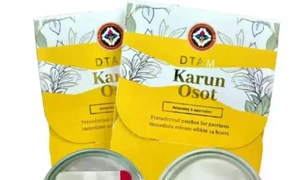Speaking after a special cabinet meeting on September 7, Prime Minister Srettha Thavisin said that the government has attached great importance to the agricultural sector and people’s well-being, especially issues related to market expansion, increasing farmers’ income, boosting farming efficiency, reducing production costs, promoting exports and ensuring sufficient food supplies for domestic consumption.

He said the impact of El Nino must particularly be taken into account when implementing measures to help the farming sector while instructing the Agriculture and Cooperatives Minister to gather information on the phenomenon, including the impacts.
The impacts of El Nino will be discussed during the next cabinet meeting on September 13, he said, adding that measures will then be rolled out to address concerns.
Kriengkrai Thiennukul, chair of the Federation of Thai Industries, said the private sector is concerned about the impact of the drought situation, which is predicted to worsen this year. As of July this year, accumulated rainfall was unusually low in every region, with the amount of rainfall in the Central Plains Region, in particular, falling by 40% when compared with the amount of rain the region usually receives during the rainy season.
Visit Limlurcha, vice chair of the Thai Chamber of Commerce and president of the Thai Future Food Trade Association, echoed this view, saying El Nino will inflict damage on the agricultural sector.
According to Visit, crops that are likely to be the worst hit by El Nino include rice, cassava, rubber plants, maize for animal feed, oil palms and fruit. Severe El Nino impacts could seriously affect sugar production in Thailand and India, as well as the harvesting of sugarcane in Brazil. Visit warned it could all lead to a sharp increase in global sugar prices.
























